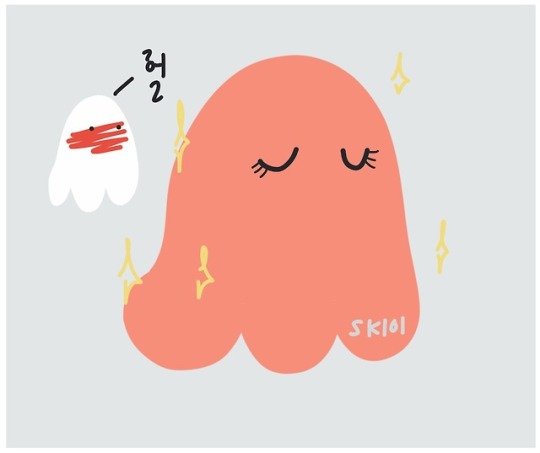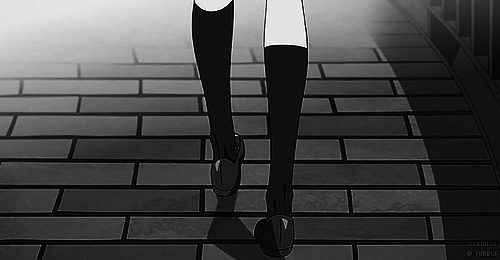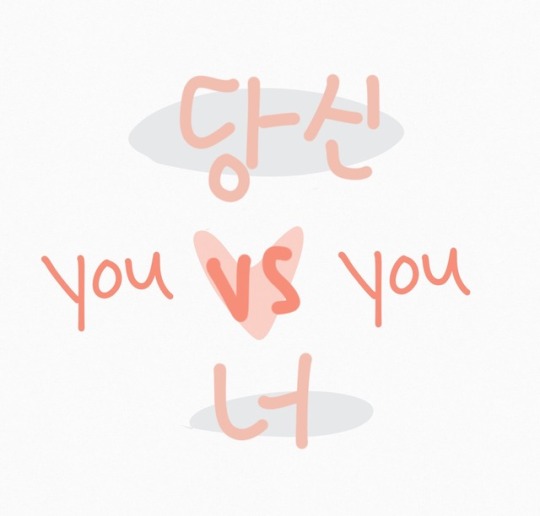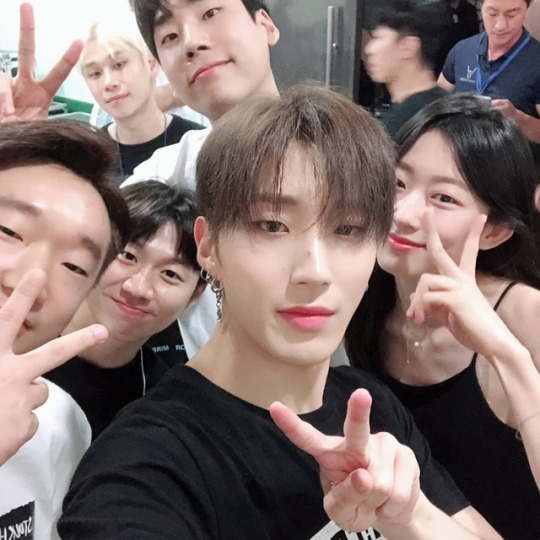Text
ah yes, my favourite foreign language feel, “I know what all of those words mean individually but not together like that”
212K notes
·
View notes
Text

idk if yall remember but i asked if yall want me to start this lil series a long time ago but i’ve finally gotten onto it!! u’d be surprised to find out how many of this can save u lots of $$ too and i still have a lot of posts to come so look out for them ٩◔‿◔۶
get urself a water bottle
i was shocked to find out sm people don’t have bottles of their own??
reduces waste
save $$ by never buying plastic bottles bc u can just refill it
also get urself a tumbler
so u can use ur own at cafes and starbucks
such a good investment u buy a $10 cup && save 10₵ everytime
if u drink 4 coffees a week that’s $20 saved a year
take the public transport / bike / walk
esp if u have time after school and when ur not in a rush
extremely therapeutic and is a great stress relief
u can rent bikes now which is rly cool
draw ur curtains
apparently 10% of energy can be saved on heating when u let sunlight in
saving money too how cool
turn ur thermostat down by 1°C
or up if u use air conditioning
apparently u can save up to $60 a year
or just turn it down by 5 degrees and hibernate in ur hoodie + a thick ass blanket bc it’s rly comfy and u should try it
shop w reusable shopping bags
or just bring a huge bag u can dump stuff into
some places deduct a few cents if u don’t use plastic bags isn’t that gr10
reuse plastic bags
don’t throw them out bros
u can line ur bins w them
if u need a change of clothes throw them in a plastic bag before u throw it in ur bag
after u gym or smt throw ur sweaty clothes in a plastic bag so it doesn’t stench up ur bag
and check if the plastic bags are recyclable before u recycle them!!
buy refills instead of new pens
let’s be real ur gonna buy the same pen
so just get refills instead it’s sm cheaper + u get 10 in a box
just google “(pen name) refill” it’s rly easy
some shops sell refills at the counter u can go ask
(@ sg and msia fam,, popular bookshop does)
STOP BUYING NEW PENCILS
literally just get ONE mechanical pencil
and get urself some pencil lead
idk why every back to school haul has like 5 pencils
yo pencil lead refill is a thing my brothers
and a box costs less than a pencil and lasts for more than a year
is this not a thing??
eat meatless some days
did u kno giving up beef will reduce ur carbon footprint more than if u give up ur car
but lol still gotta live that cheeseburger and kbbq life from time to time
so just cut out the meat like 1 or 2 days a week
and no mutton and beef and pork and turkey if u can help it
save and recycle paper pls !!11!1
use both sides!
recycle don’t trash!
buy recycled paper and notebooks!
that is all kiddos if u have more ways to save the earth pls inbox me here!! and check out my other study tips too:
on types of learners // my top tips // on exam prep // on sleep // on e-devices // on chinese resources // on notes
6K notes
·
View notes
Text
Level 1 / Lesson 3: Past-Tense
안녕, 여러분! Hey, y’all! In this lesson, I want to introduce you to past-tense sentences in Korean. We already know about present-tense sentences, so hopefully past-tense ones won’t be super difficult :). Let’s begin!
Verbs
Let’s take a look at a basic present-tense sentence that translates to “I do the homework”:
저는 숙제를 해요 = I do the homework
In previous lessons, we learned how to conjugate the verb 하다 (to do) into this present-tense form. But how do we conjugate this verb if you want to say that you did the homework? It’s actually not incredibly different from the present-tense, actually. You can use this basic formula:
verb stem + 았 / 었 / 였 + 어요
*Note: a verb or adjective stem is just a verb minus the 다. In this case, the verb stem would just be 하.
So let’s say we already did the homework:
하 + 았 / 었 / 였 + 어요 = 했어요
저는 숙제를 했어요 = I did the homework
Essentially, it’s just attaching ㅆ to the end of a present-tense-conjugated verb stem for the most part (if that makes sense lol). Let’s look at some more examples!
1. I went to the hospital yesterday.
가다 = to go
어제 = yesterday
가 + 았 / 었 / 였 + 어요 = 갔어요
어제는 제가 병원에 갔어요 = I went to the hospital yesterday
2. We met our friend at 12 o’clock.
만나다 = to meet
우리 = we / us
만나 + 았 / 었 / 였 + 어요 = 만났어요
열두시에 우리가 친구를 만났어요 = We met our friend at 12 o’clock
3. My older brother called me last week.
부르다 = to call
지난주 = last week (주 alone means “week”)
부르 + 았 / 었 / 였 + 어요 = 불렀어요 (this verb is irregular, so it’s conjugated as shown!)
지난주에 오빠가 저를 불렀어요 = My older brother called me last week
Adjectives
We learned previously that adjectives can be conjugated the same way that verbs are conjugated. You can use the same formula:
adjective stem + 았 / 었 / 였 + 어요
Here are some examples:
1. The dress was really pretty.
예쁘다 = to be pretty
정말 = really
예쁘 + 았 / 었 / 였 + 어요 = 예뻤어요
드레스가 정말 예뻤어요 = The dress was really pretty
2. The necklace was a little expensive
비싸다 = to be expensive
목걸이 = necklace
좀 = a little / a bit
비싸 + 았 / 었 / 였 + 어요 = 비쌌어요
목걸이가 좀 비쌌어요 = The necklace was a little expensive
Questions
In Korean, the simplest way to make a sentence a question is just to add a question mark at the end of it. While in English we have words like “did” and “do” in our questions, Korean doesn’t, so it’s a bit easier! For instance:
숙제를 해요? = Do you do the homework?
Likewise, all we have to do is add a question mark to the end of a past-tense sentence to ask if someone did something:
숙제를 했어요? = Did you do the homework?
어제는 병원에 갔어요? = Did you go to the hospital yesterday?
드레스가 정말 예뻤어요? = Was the dress really pretty?
These sentences are all formal as shown by the 요 at the end of each sentence. Thus, to make them informal, simply drop the 요 (for questions and regular statements alike):
어제는 제가 병원에 갔어.
열두시에 우리가 친구를 만났어.
지난주에 오빠가 저를 불렀어.
드레스가 정말 예뻤어.
목걸이가 좀 비쌌어.
That’s about it for this lesson! 많이 배웠어요? Did you learn a lot? Hope it helped you learn how to talk about your past! Please don’t hesitate to ask me any questions if you have any!! See y’all in the next lesson! 안녕!
322 notes
·
View notes
Text
Vocabulary: Must-Know Adjectives
안녕, 여러분! In this vocab list, I want to present some very important adjectives to build your beginner vocabulary! 시작해볼까요? Shall we start?
기쁘다 = to be happy/to be glad
길다 = to be long
as in physical length
to describe a noun, drop the ㄹ to make 긴
Ex. 긴 머리 = long hair
귀엽다 = to be cute
괜찮다 = to be okay
그렇다 = to be like that/to be so
conjugated in the present tense as 그래요
그래요 actually can be used to mean “yes” or “sure.” You can think of it as “yes, that is so.”
그래요 can also be used as a question: “그래요?” It can be translated as “really?” or “is that so?”
나쁘다 = to be bad
느리다 = to be slow
다르다 = to be different
conjugated in the present tense as 달라요
덥다 = to be hot
used to describe weather
똑똑하다 = to be smart
뜨겁다 = to be hot used to describe an object. Ex. 뜨거운 커피 = hot coffee
맛있다 = to be delicious
맛없다 = to taste bad
많다 = to be many/to be a lot
멋있다 = to be cool
as in something that is “awesome” or “great” (as opposed to temperature lol)
못 생겼다 = to be ugly
conjugated in the present tense as 못 생겼어요—literally means “came out bad”
빠르다 = to be fast
conjugated in the present tense as 빨라요
비싸다 = to be expensive
슬프다 = to be sad
싸다 = to be cheap
새롭다 = to be new
쉽다 = to be easy
시끄럽다 = to be loud/to be noisy
예쁘다 = to be pretty
아름답다 = to be beautiful
어렵다 = to be difficult
오래되다 = to be old
used to describe an object.
Ex. 오래된 책 = old book
이렇다 = to be like this
conjugated in the present tense as 이래요
작다 = to be small
잘 생기다 = to be good-looking
conjugated in the present tense as 잘 생겼어요—literally means “came out well”
좋다 = to be good
짧다 = to be short
as in physical length
ex. 짧은 치마 = short skirt
조용하다 = to be quiet
착하다 = to be kind
차갑다 = to be cold
used to describe an object
Ex. 차가운 물 = cold water
춥다 = to be cold
used to describe weather
크다 = to be big
특별하다 = to be special
편하다 = to be comfortable
화가 나다 = to be angry
행복하다 = to be happy
Another long vocab list, huh? Building some basic vocabulary is important, so I hope these many adjectives helped! See you in the next lesson! 안녕!
2K notes
·
View notes
Text



saw this on twitter, thought it might be helpful!
source: alisonykim
52K notes
·
View notes
Text
Animals
박쥐 - Bat
곰 - Bear
새 - Bird
낙타 - Camel
고양이 - Cat
병아리 - Chick
닭 - Chicken
소 - Cow
게 - Crab
악어 - Crocodile
사슴 - Deer
개 - Dog
오리 - Duck
독수리 - Eagle
코끼리 - Elephant
물고기 - Fish
개구리 - Frog
여우 - Fox
기린 - Giraffe
염소 - Goat
고릴라 - Gorilla
고슴도치 - Hedgehog
하마 - Hippopotamus
말 - Horse
캥거루 - Kangaroo
코알라 - Koala
표범 - Leopard
사자 - Lion
도마뱀 - Lizard
원숭이 - Monkey
쥐 - Mouse
타조 - Ostrich
부엉이 - Owl
황소 - Ox
판다 - Panda
펭귄 - Penguin
돼지 - Pig
비둘기 - Pigeon
조랑말 - Pony
토끼 - Rabbit
너구리 - Raccoon
코뿔소 - Rhinoceros
갈매기 - Seagull
물개 - Seal
상어 - Shark
뱀 - Snake
다람쥐 - Squirrel
호랑이 - Tiger
거북이 - Turtle
고래 - Whale
늑대 - Wolf
얼룩말 - Zebra
3K notes
·
View notes
Photo

Korean Slang/Common Expressions:
This is a list of all the slang that I know and have used when speaking Korean. But this isn’t a full list of all slang in Korean. There are tons that I don’t know, but I will guarantee, that if you use these to a Korean person, they will most likely be surprised that a foreigner knows Korean slang. Without further adieu, let’s go!
Food:
♡ 일차 - first round
♡ 이차 - second round
♡ 삼차 - third round
♡ 맛점 - delicious lunch
♡ 아점 - brunch (아침 + 점심)
♡ 맥날 - mcdonalds
♡ 스벅 - starbucks
♡ 먹방 - mukbang (aka eating show)
People:
♡ 남사친 - friend who’s a guy (남자 + 사람 + 친구)
♡ 여사친 - friend who’s a girl
♡ 남친 - boyfriend (남자친구)
♡ 여친 - girlfriend
♡ 붕아빵 - two people who look alike (kind of like doppelgänger)
♡ 변태 - pervert (usually used for older men)
♡ 몸짱 - great body (direc. body best)
♡ 얼짱 - great face (direc. face best)
♡ 금사빠 - someone who falls easily
♡ 바람둥이 - player
Expressions:
♡ 짱! - amazing!
♡ 아싸! - yay!
♡ 헐 - oh my god…
♡ 대박 - awesome!
♡ 우와 / 와 - wow!
♡ 아! - ouch!
♡ 어머 - oh my
Feelings:
♡ 꿀잼 - really funny (재밌어요)
♡ 노잼 - not funny
♡ 웃프다 - funny but sad
♡ 근자감 - a lot of self confidence
♡ 멘붕 - mental breakdown
♡ 케미 - chemistry (for lovebirds)
Other:
♡ 낼 - tomorrow
♡ 짐 - now
♡ 담 - next
♡ 첨 - first
♡ 넘 - very
♡ 좀 - a little
♡ 울 - we
♡ 걍 - just
♡ 어케 - how
♡ 글고 - and
♡ 젤 - most, best
♡ 먄 - sorry
♡ 글쿤 - I see
♡ 알써 - I understand
♡ 몰겠어 - I don’t know
8K notes
·
View notes
Text
Months in Chinese
一月 January
二月 February
三月 March
四月 April
五月 May
六月 June
七月 July
八月 August
九月 September
十月 October
十一月 November
十二月 December
💡So basically you just add the number in front of “月” (yuè) which means moon or month in this case.
[A/N]: I didn’t put the pinyin of the months, if you guys want it message me so I know and I’ll add it in
33 notes
·
View notes
Text
mandarin phrases with 「足」

足 zu2 foot
足智多谋「足智多謀」zu2 zhi4 duo1 mou2 resourceful, full of stratagems
情同手足 qing2 tong2 shou3 zu2 lit. as close as one’s hands and feet, fig. loving one another as siblings, close friendship
足高气扬「足高氣揚」zu2 gao1 qi4 yang2 high and mighty, arrogant
不一而足 bu4 yi1 er2 zu1 by no means an isolated case
一夔已足 yi1 kui2 yi3 zu2 one talented person is enough for the job
品头论足「品頭論足」pin3 tou2 lun4 zu2 lit. to assess the head and discuss the feet, fig. minute criticism of a woman’s appearance, finding fault in minor details
画蛇添足「畫蛇添足」hua4 she2 tian1 zu2 lit. to draw legs on a snake, fig. to ruin the effect by adding something superfluous, overdoing it
胼手胝足 pian2 shou3 zhi1 zu2 lit. with callouses on hands and feet, fig. to work one’s fingers to the bone
140 notes
·
View notes
Text
ask me things , im doing a study/general life (advice) q&a ♡
1 note
·
View note
Text
ask me things , im doing a study/general life (advice) q&a ♡
#sorry it takes a while to answer all so it will take around a week to respond !!#but i will don't worry ♡#ur all precious + i hope u achieve what u want in life ^^#q&a
1 note
·
View note
Photo

당신 vs. 너
So there seems to be some confusion surrounding 당신 and 너. Mostly, people think they’re interchangeable when in reality they couldn’t be more different. Something that I noticed, is that often people will say that 너 is just the informal/casual version of 당신, much like 나 is to 저 - but this couldn’t be more incorrect.
As someone who has made a lot of mistakes in Korean (which is only natural), I am here to help you understand the difference! Without further adieu, let’s learn!
당신
♡ used for a married couple or a couple that’s been together for a long time
~ 당신 저녁식사 했어요? - Have you eaten dinner?
♡ used to start a fight
~ 당신이 뭔데 나한테 그런 말을 하는 거야? - Who are you to say that to me?
♡ used for general audience
~ 당신의 운을 시험하시겠습니까?
너
♡ used for literally everything else
Although, I would caution the use of 너. Unless it’s not obvious, Korean’s don’t generally use 너 or 나. That’s why you hear sentences like, “밥 먹었어요? (have you eaten?)” or “피곤해요 (I’m tired)”. Again in formal situations, these things change as well. For example, calling your elder 너 is extremely rude. In these cases, you would use their title (*이름*씨 / 할아버지 / 할머니 / 아저씨 / 아주마 / 선생님).
But there you have it! An explanation of the difference between 당신 and 너 :) Happy Learning!
~ SK101
753 notes
·
View notes
Text
i miss kyungsoo
2 notes
·
View notes



